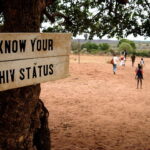West Africa has become a hotbed for cybercrime in recent years, posing significant challenges to economic development, national security, and social stability. As digital infrastructure expands across the region, so too does the vulnerability to cyber threats.
The Scope of Cybercrime in West Africa
West Africa’s cybercrime landscape is diverse, encompassing various forms of online criminal activities. These include internet fraud, phishing, cyber espionage, ransomware attacks, and digital piracy. The region has gained notoriety, particularly for internet fraud, often perpetrated by organized groups known as “Yahoo Yahoo” boys. These cybercriminals use sophisticated tactics to scam individuals and businesses worldwide, causing significant financial losses.
According to the 2020 report by the United Nations Office on Drugs and Crime (UNODC), cybercrime costs the global economy approximately $600 billion annually, with a significant portion attributed to activities originating from West Africa. The Economic Community of West African States (ECOWAS) also reported that cybercrime in the region has led to financial losses estimated at $3.5 billion annually.
The economic impact of cybercrime in West Africa is profound. Businesses and individuals are not only direct victims of financial fraud but also suffer from the ripple effects of a tarnished regional reputation. This negative perception can deter foreign investment and hinder the growth of local industries, particularly in the technology and financial sectors.
The banking sector is particularly vulnerable, with cybercriminals exploiting weak cybersecurity protocols to syphon funds. In Nigeria, Africa’s largest economy, the Central Bank reported a staggering loss of over $500 million to cybercrime in 2021 alone. This loss highlights the critical need for stronger cybersecurity measures and regulatory frameworks to protect financial institutions and their customers.
Moreover, the rise of ransomware attacks in the region has further compounded economic woes. In 2022, Ghana experienced a series of ransomware attacks targeting government and private sector entities. The cost of these attacks, in terms of ransom payments and lost productivity, runs into millions of dollars. Such incidents underscore the urgent need for enhanced cybersecurity infrastructure and awareness.
No doubt the surge in electronic payments has fuelled the prevalence of internet scams and online fraud, eroding trust in digital transactions, impeding the growth of e-commerce and online services. This lack of trust not only affects economic activities but also hampers the region’s digital transformation efforts.
Cyber espionage and attacks on critical infrastructure, such as power grids and telecommunications networks, pose serious threats to national security. In recent years, there have been reports of cyber attacks targeting government agencies and security apparatus in several West African countries, including Nigeria, Ghana, and Ivory Coast. These incidents highlight the need for robust cyber defence mechanisms to protect sensitive information and critical infrastructure.
West-African countries are taking steps to strengthen their cybersecurity frameworks. The ECOWAS region has been proactive in adopting the ECOWAS Cybersecurity and Cybercrime Strategy, which aims to enhance regional cooperation in combating cybercrime. This strategy includes measures such as capacity building, public awareness campaigns, and the establishment of national computer emergency response teams (CERTs).
Nigeria, often seen as a focal point for cybercrime in the region, has made significant strides in addressing the issue. The Nigerian government established the Nigerian Cybercrime Act in 2015, which provides a legal framework for prosecuting cybercriminals and outlines penalties for various cyber offences. Additionally, the Economic and Financial Crimes Commission (EFCC) has been actively involved in tracking and apprehending cybercriminals, often in collaboration with international law enforcement agencies. Although many cybercrimes emerge from Nigeria, more often they involve collaboration with nationals from neighbouring countries such as Ghana and Cameroon
A little over a week ago, a global operation busted fraud syndicates within West Africa. Operation Jackal III resulted in 300 arrests, with $3 million confiscated from the syndicates, INTERPOL reported.
Ghana has also taken concrete steps to enhance cybersecurity. In 2018, the country launched its National Cybersecurity Policy and Strategy, which aims to protect critical information infrastructure and promote cybersecurity awareness. The Ghanaian government has also been working with international partners to build capacity and improve its cybersecurity infrastructure.
Cybercrime in West Africa is a growing concern with far-reaching implications for the region’s economic and social stability. As digital connectivity increases, so too does the vulnerability to cyber threats. The financial losses, security risks, and erosion of trust associated with cybercrime underscore the urgent need for comprehensive cybersecurity strategies.
Strengthening legal frameworks, enhancing regional cooperation, and building cybersecurity awareness are critical steps in combating this menace. Notwithstanding the interventions, knowledge of cybersecurity in Africa is relatively nascent, highlighting the need for awareness campaigns to better tackle this scourge that threatens the economy of the world’s youngest continent.
West Africa faces significant challenges from a burgeoning cybercrime landscape, which impacts economic development, national security, and social stability. The digital infrastructure's expansion has increased the region's vulnerability to various cyber threats, such as internet fraud conducted by "Yahoo Yahoo" boys, phishing, ransomware, cyber espionage, and digital piracy. The cost of cybercrime is substantial, with the global economic toll reaching approximately $600 billion annually, a significant portion of which is attributed to West African-originating activities.
The economic consequences are severe, particularly affecting the banking sector, which has seen instances of massive financial losses. For example, Nigeria's Central Bank reported a loss exceeding $500 million in 2021 due to cybercrime. Ransomware attacks have also hit the region hard, with Ghana experiencing a series of attacks in 2022 that cost millions in ransoms and lost productivity.
The rise in electronic payments has led to a surge in internet scams, reducing trust in digital transactions, hampering e-commerce, and impeding digital transformation efforts. Additionally, cyber attacks on critical infrastructure like power grids and telecom networks threaten national security, which has necessitated the implementation of robust cyber defense mechanisms.
Countries in the region, including Nigeria and Ghana, have begun strengthening their cybersecurity frameworks. The ECOWAS Cybersecurity and Cybercrime Strategy aims to enhance regional cooperation via capacity building, public awareness campaigns, and the establishment of national computer emergency response teams (CERTs). Nigeria's 2015 Cybercrime Act provides a legal framework for prosecuting offenders, while the Economic and Financial Crimes Commission (EFCC) collaborates internationally to apprehend criminals. Ghana's National Cybersecurity Policy and Strategy launched in 2018 focuses on protecting critical information infrastructure and raising cybersecurity awareness. Recent global operations, such as INTERPOL's Operation Jackal III, have targeted financial crime syndicates in West Africa, showing the region's proactive stance against cybercrime.
In conclusion, cybercrime in West Africa poses a multifaceted threat with profound economic and security implications. Strengthening legal frameworks, enhancing regional cooperation, and raising cybersecurity awareness are crucial to combating this menace. Despite the efforts, cybersecurity knowledge in Africa remains nascent, underscoring the need for ongoing awareness campaigns.






